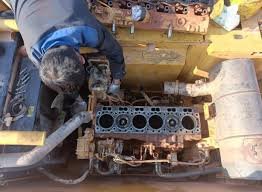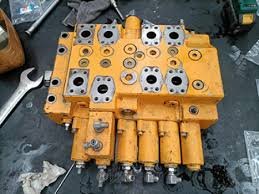Introduction
In modern construction and engineering industries, excavators are indispensable heavy machinery. They play a vital role in earthmoving, demolition, mining, and municipal projects. However, with increased usage, excavators are prone to various faults, affecting work efficiency and safety. Understanding common types of excavators, their faults, and solutions is crucial for operators and maintenance personnel. This article will detail several common excavator types and their potential faults along with corresponding solutions.
1. Common Types of Excavators
1.1. Crawler Excavators
- Description and Applications: Known for their stability and off-road capabilities, widely used in earthmoving, mining, and construction sites.
- Pros and Cons:
- Pros: Strong traction, good stability, suitable for complex terrains.
- Cons: Slower movement speed, higher maintenance costs.
1.2. Wheeled Excavators
- Description and Applications: Favored for urban construction and small projects due to their flexibility and speed.
- Pros and Cons:
- Pros: Easy to move, suitable for urban roadwork.
- Cons: Lower load capacity, limited application range.
1.3. Mini Excavators
- Description and Applications: Ideal for working in tight spaces, such as gardening and urban infrastructure projects.
- Pros and Cons:
- Pros: Compact size, flexible operation.
- Cons: Limited digging depth and power.
1.4. Micro Excavators
- Description and Applications: Suitable for home gardening and small construction projects, easy to operate and transport.
- Pros and Cons:
- Pros: Efficient, flexible, easy to transport.
- Cons: Limited power and working range.
2. Common Excavator Faults

2.1. Engine Issues
- Common Symptoms: Difficulty starting, unusual noises, power loss, excessive smoke.
- Possible Causes: Fuel system issues, faulty air filter, low oil levels.
2.2. Hydraulic System Failures
- Common Symptoms: Hydraulic oil leaks, slow movements, lack of power.
- Possible Causes: Low hydraulic oil, damaged hoses, faulty hydraulic pump.
2.3. Electrical System Problems
- Common Symptoms: Dashboard lights not working, electrical equipment failure.
- Possible Causes: Battery issues, loose connections, blown fuses.
2.4. Mobility System Faults
- Common Symptoms: Difficulty moving, unusual noises, tracks coming off.
- Possible Causes: Worn tracks, faulty drive motor.
3. Solutions for Faults
3.1. Engine Troubleshooting Solutions
- Inspection and Maintenance Tips:
- Check fuel and oil quality.
- Steps to Take:
- Stop use, check fuel filter, oil, and coolant levels.
3.2. Hydraulic System Solutions
- Inspection and Maintenance Tips:
- Check hydraulic oil levels and cleanliness.
- Steps to Take:
- Locate leaks and replace parts as necessary.
3.3. Electrical System Solutions
- Inspection and Maintenance Tips:
- Check battery power and circuit connections.
- Steps to Take:
- Start from the battery and check connections and fuses.
3.4. Mobility System Solutions
- Inspection and Maintenance Tips:
- Check track tension and wear.
- Steps to Take:
- Inspect the drive system and replace worn parts if needed.

4. Preventive Measures
4.1. Regular Maintenance
- Importance and Suggestions: Regular maintenance can prevent most faults; it’s advisable to create a detailed maintenance schedule.
4.2. Operator Training
- Necessity of Skill Enhancement: Providing professional training for operators can reduce faults caused by improper handling.
4.3. Use Quality Parts
- Impact on Equipment Performance: Using high-quality parts and hydraulic oil can enhance equipment performance and reliability.
5. Conclusion
By understanding the types of excavators, their faults, and solutions, operators can more effectively address equipment issues and ensure smooth construction operations. Regular maintenance and inspections are key factors in ensuring the normal operation of excavators.
6. Frequently Asked Questions (FAQ)
- Q1: How can I tell if an excavator needs maintenance?
- A1: Observe whether the equipment operates smoothly and regularly check fluid levels.
- Q2: What are common signs of hydraulic system faults?
- A2: Slow hydraulic actions and leaks.


